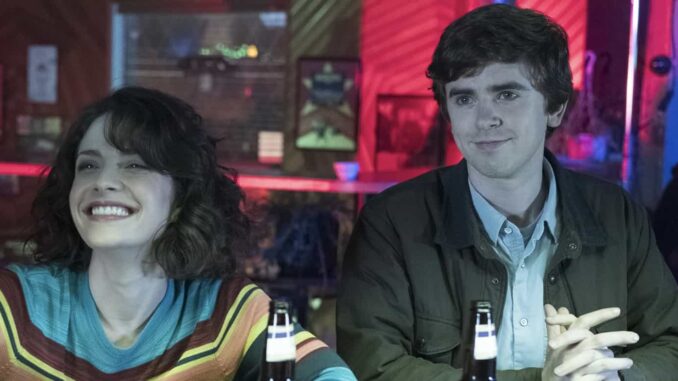
When The Good Doctor first premiered, it sparked immediate conversation. Centered around Dr. Shaun Murphy—a brilliant young surgeon with autism and savant syndrome—many wondered whether the show would rely on stereotypes or truly dig into the complexities of living with autism. Thanks to Freddie Highmore’s nuanced performance, Shaun became far more than a one-dimensional character. He became a fully realized, deeply human figure whose story resonated with millions. From the outset, portraying someone on the autism spectrum posed an enormous challenge. Television has often misrepresented neurodivergent characters, reducing them to caricatures: robotic, emotionally distant, or socially unaware. But Highmore, who is not autistic himself, approached the role with respect, empathy, and an extraordinary attention to detail. He didn’t just mimic behaviors—he built a character.
What makes Freddie Highmore’s portrayal of Shaun Murphy so compelling is his ability to capture both the challenges and the triumphs of living with autism. Shaun struggles with communication, sensory overload, and navigating the unspoken social rules of a hospital. But he also brings incredible precision, insight, and innovation to his surgical work. Highmore brings this duality to life with care, showing how Shaun’s autism is a part of him—not all of him. Throughout the series, viewers watched Shaun grow, not just as a doctor, but as a person. His journey includes romantic relationships, deep friendships, loss, and even moments of anger and frustration. Rather than isolating Shaun’s autism as his sole defining trait, the show and Highmore’s performance allow him to experience the full range of human emotion. It’s in those moments—when he stands up for himself, when he falters and tries again—that Shaun becomes real.
Highmore’s collaboration with autism consultants and the show’s creators was vital. He worked closely with professionals to understand autism beyond the surface level, focusing on authenticity rather than dramatic effect. The result is a character that doesn’t fall into the usual “autistic genius” trope. Shaun is not perfect. He makes mistakes, struggles with self-doubt, and at times, pushes people away. But that’s what makes him believable.
It’s also worth noting that Freddie Highmore has gone above and beyond in his role. Not only does he star as the lead, but he has also served as a producer and even written and directed episodes of The Good Doctor. His creative input helped shape the show’s tone and direction, further ensuring that Shaun’s story was grounded in humanity, not melodrama. The public response to Highmore’s performance has been overwhelmingly positive. Viewers—both neurotypical and neurodivergent—have found Shaun Murphy inspiring. For many, Shaun represents the idea that people on the autism spectrum can succeed in high-pressure environments, have meaningful relationships, and be seen for more than their diagnosis.
However, some critics argue that The Good Doctor still idealizes Shaun’s condition, portraying an almost “superhuman” version of autism. But Highmore himself has acknowledged the limitations of representing such a broad and diverse community through a single character. He often reminds audiences that Shaun’s experience is just one story among many. That kind of self-awareness is rare in mainstream television. It speaks volumes about Highmore’s integrity as both an actor and a storyteller. He didn’t just play a character; he championed a message—one of inclusion, possibility, and dignity. As The Good Doctor prepares to wrap up its final season, fans will remember Shaun Murphy not just for his surgical brilliance, but for his resilience, vulnerability, and growth. And they’ll remember Freddie Highmore as the actor who gave him heart, depth, and dimension.
In the end, what Freddie Highmore achieved with Shaun Murphy is something few actors manage: he made the invisible visible. He offered a portrayal that didn’t simplify or sensationalize autism, but instead honored the complexity of the human experience. For that, his work on The Good Doctor will leave a lasting legacy—on screen, and in the hearts of viewers everywhere.
